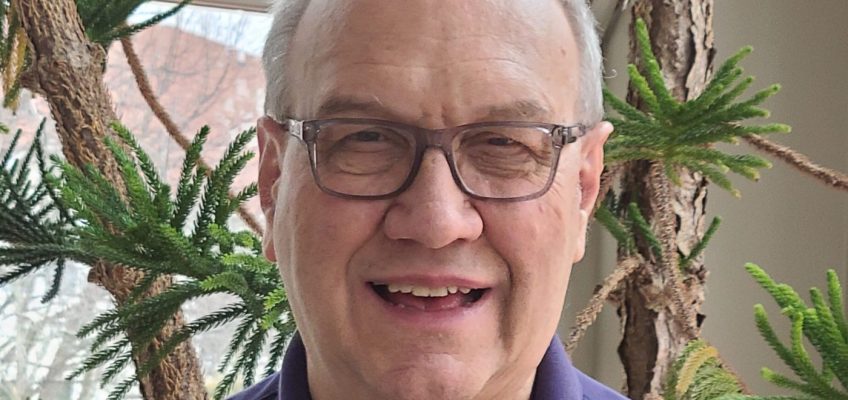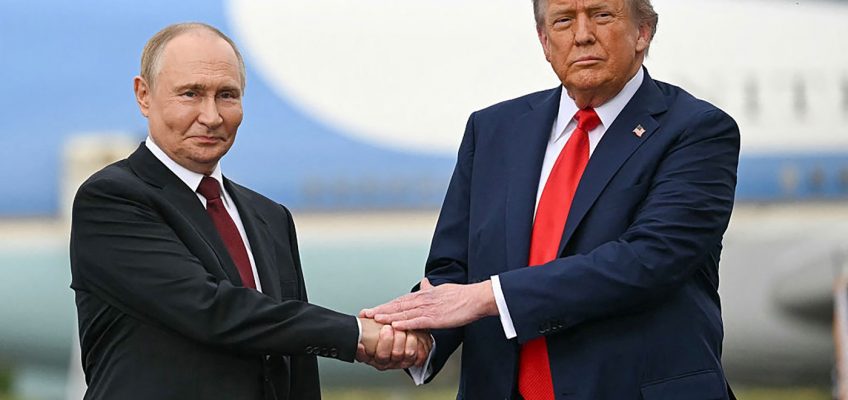Edward Lotterman
An Old Testament sage once said, “there is nothing new in the world.” Yet the Trump administration and that of Javier Milei in Argentina have really found something unique.
It is the bailout of a Latin American country in which the corruption, self-dealing and cynicism on both sides appears evenly balanced. In the 57 years since the U.S. Army sent me to Brazil, kindling my own love affair with that complex continent, I have never seen anything quite like it.
Consider the paradoxes:
• Just as U.S. farmers are piling soybeans on the ground because storage and transportation systems are jammed full by lack of exports, mainly to China, the Trump administration is organizing a $40 billion bailout of a country that just made a large sale of soybeans to China and will sell more.
• Just as U.S. cattle ranchers and feeders are in their fourth year of making good money after decades of beef prices declining in real terms and a decade-long drought, the president is calling for large increases in U.S. beef imports from Argentina.
• Just as death rates from disease and hunger are climbing in poor nations after the cutoff of USAID health and nutrition programs, the sum earmarked for this one, non-starving middle-income country equals the $40 billion for that agency worldwide in 2023.
• Ironically, despite U.S. farmer and rancher anger about siding with a competitor, Argentina will actually be stronger in global commodity markets without the bailout, either if it is not made or fails. More about that below.
Background on Argentina’s politics and its ag sector is useful.
First off, Argentina has perhaps the most bountiful endowment of natural resources relative to population of any country in the world. Its vast grasslands, the pampas, have rich soils and good rainfall.
Wheat was grown and beef raised from the colonial era on. By the late 1800s, with railroads, threshing machines, large slaughterhouses and steamships with refrigeration, Argentina exported vast quantities of wheat and beef to England. The country grew rich. By 1910, per-capita incomes in Argentina were similar to those of Australia or Canada.
Exporting to war-torn Europe during World War I made things even better. But postwar economic travails in Europe, the financial crash of 1929, trade wars ignited by the U.S., together with the eventual Great Depression, put an end to prosperity. Ninety years later, Argentina still hasn’t recovered its economic mojo.
A military coup in 1930 ended 70 years of democracy. Fourteen different generals or admirals would occupy the Pink House — the equivalent to our West Wing — between then and 1983. One, Juan Peron, came to power as part of a 1943 military coup. He stood for election in 1946 and won despite strong U.S. opposition. Not a defender of big landowners and industrialists, Peron broke the mold of the traditional strongman. A charismatic populist with a mishmash of ideas from Italy’s Benito Mussolini and Catholic social thought, Peron championed the causes of labor and the poor.
Aided by his wife of neo-Broadway fame, Evita, Peron gave the government a much greater role in the economy, establishing labor unions and extensive social benefits. He also created a political movement continuing to this day. Opposing this brought Milei to power in late 2023.
A political cycle of Peronists and anti-Peronists during this period involved an economic ping-pong of reform plans by newly elected presidents. Harsh reforms led to bursts of prosperity. Then large budget deficits, corruption and an overvalued peso would lead to shortages of needed foreign currencies and other economic crises.
Argentina defaulted on foreign debts repeatedly and pleaded for bailout packages from the International Monetary Fund even more often. These carried harsh conditions usually pushing the nation into recession even as foreign exchange accounts came into balance.
Milei won election after two decades during which three Peronists had held power for 16 years. Milei’s libertarian economic program directly countered the Peronists’ statism, but his demagogic political style mirrors that of the old strongmen.
Milei’s crash free-market program boosted the stagnant economy. But two familiar problems reared their ugly heads. Corruption arose, including deals involving Milei’s sister. And Milei’s contrary anti-free market policy of maintaining a fixed exchange rate brought problems in less than a year.
Foreign exchange crises are unknown to U.S. citizens because the dollar is the world’s “reserve currency.” All other countries need tradable currencies such as dollars, euros, pounds or yen to pay for imports of raw materials, intermediate goods for manufacturing finished products or machinery and consumer goods. They also need such currencies to pay interest and principal on business or government borrowing from lenders abroad.
As long as a country exports enough to earn such needed foreign currencies, there is no problem. But if exports run short, market forces push the exchange value of the domestic currency lower. People needing dollars, euros, yen or yuan must offer more pesos to get them. That raises the price of imports in pesos.
Governments can deter such drops in exchange value by selling off reserves of currencies they hold. When these run out however, devaluation is inevitable, usually causing a recession. The longer the inevitable was staved off, the harsher the eventual adjustment.
Despite his free-market rhetoric, Milei kept a fixed exchange rate. Argentina lacked foreign currencies so soon that last April it sought yet another $20 billion from the IMF. The absurd result was that Argentina, with 0.5% of the world’s population, has 35% of all IMF loans outstanding.
Now, six months later, that money is largely gone. Hence the need now for another $20 billion, or perhaps $40 billion, from a combination of the U.S. Treasury or Wall Street. These dollars are not going to build railroads, ports, schools or refineries or even provide school lunches. They mostly will keep prices of imported business and consumer goods low for ordinary consumers and help rich Argentines move wealth abroad before the next collapse.
A bailout will also help hedge fund operators like Treasury Secretary Scott Bessant’s former colleague, occasional deal partner and long-time friend, Robert Citrone, cover large bets he made on Milei’s boom proving permanent. Moreover, hedge funds like Blackrock, Pimco and even Fidelity, that were so stupid as to buy peso-denominated Argentine bonds, also will get their irons retrieved from the fire,
Hence the deep corruption permeating the deal.
This past week Trump sneered at a reporter who asked about the Argentina bailout. “Argentina is fighting for its life,” he said. Even for Trump, this is preposterous. Argentina faces a devaluation just as it has every five years or so since the 1950s.
Compared to the just-added $1 trillion to the U.S. national debt in the past eight weeks, $20 billion or $40 billion may not seem like much. Yet it would cover a lot of Obamacare subsidies and not just for Rep. Marjorie Taylor Greene’s Republican family in Georgia. The effect, if this money were instead invested in America first, would be large across rural Minnesota and other farm regions as well as to many in metro areas like ours.
Which brings us to the irony to which outraged U.S. farmers are blind: Without the bailout, the peso would fall in value relative to the dollar and other currencies. That would make Argentine beef, soybeans and corn cheaper to buyers in China and everywhere else, actually strengthening its position in global markets. In this regard, U.S. agriculture should be supporting the bailout, not opposing it, because, taken alone, raising the peso’s value would be a net positive for U.S. exports versus Argentine competition.
Yet another irony is that Trump is making the bailout conditional on Milei’s party winning upcoming congressional elections. This is a backfiring gift to Milei’s opponents. In 1946, U.S. Ambassador Spruille Braden’s denunciations helped Juan Peron win millions of votes with the slogan, “Braden or Peron?” Trump demanding votes for Milei’s party will have the same perverse effect.
Yet the deal is likely to go through. Milei caters masterfully to Trump’s ego and will be president even if his party loses seats in Argentina’s legislature. Rich donors to our president have much at stake. GOP members of Congress still cower from MAGA’s power. Democrats seem powerless in mustering opposition, let alone understanding what’s really going on here. Few beside farmers voice objections. We live in terrible times.
Related Articles
Real World Economics: ‘Creative destruction’ and Argentina’s debt crisis
Real World Economics: How farm payouts violate basic principles
Real World Economics: Ignorance of Social Security’s problems is not bliss
Real World Economics: How bad is it going to get?
Real World Economics: When Fed’s mandates are in conflict
St. Paul economist and writer Edward Lotterman can be reached at stpaul@edlotterman.com.




